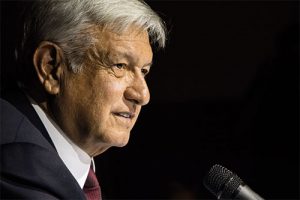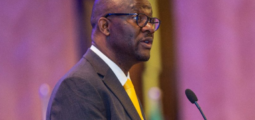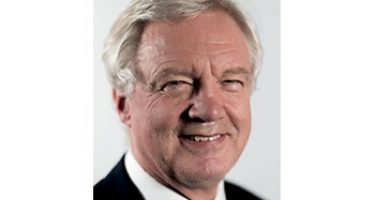Andrés Manuel López Obrador: The Remaking of Mexico

Mexico’s new president, Andrés Manuel López Obrador, seems to have given up on his promise to bring corrupt officials to justice, saying his administration doesn’t have enough prison space for all of them.
Andrés Manuel López Obrador – AMLO for short – wants to concentrate on the future, and promises to “re-found” the republic and remove corruption from its public service – albeit without locking up the perpetrators.
To set the tone for his administration, the president-elect arrived at the inauguration, on December 7, in his own Volkswagen Jetta, declining an official limousine. The next day, he put the presidential plane up for sale, vowing to never set foot aboard the Boeing 787-8 acquired for almost $220m in 2012. True to his word, Obrador travelled economy class on a commercial flight to Veracruz for his first official engagement outside the nation’s capital, taking a four-hour delay in his stride. He also ordered the disposal of 60 smaller aircraft and 70 helicopters belonging to the federal government.
Obrador refuses to step inside Los Pinos, the 19th-Century complex that, since 1934, has served as the official presidential residence. Within hours of taking over the presidency, AMLO ordered the palace to be opened to the public, and invited all Mexicans to have a look at the lifestyle their former leaders had enjoyed. Tens of thousands have since visited the palace, gaping at the gold-clad and cavernous halls, the rather banal paintings of heroic acts, and the opulent private quarters.
Obrador broke with convention by inviting Venezuelan strongman Nicolás Maduro to the luncheon that followed the inauguration ceremony. Other leftists present included presidents Miguel Díaz-Canel of Cuba and Evo Morales of Bolivia. It is not so much that Obrador has sympathies for near-totalitarian or absolutist leaders, but that Mexico needs to reaffirm the independence of its foreign policy which – under previous administrations – had morphed into an appendix of the US State Department. Traditionally a champion of the non-aligned movement, Obrador’s Mexico wants to rescue its reputation as a neutral power broker.
Obrador has made it a point of honour not to immediately offend the Trump Administration and award the US president the chance of a cordial relationship. Though there is no shortage of contentious issues between the two countries, Obrador seems to have hit it off splendidly with his US counterpart. Whatever barbs were traded travelled along parallels vectors, causing neither hurt nor offense.
It is likely that Trump and his administration do not yet know what to make of Obrador. The self-proclaimed “scourge of neoliberalism” is the same man who courts foreign investors and knows how to lay on the charm. But Obrador is also a politician who used every trick in the book to cow the establishment and exploit every sign of weakness to finish off opponents.
A populist and a pragmatist rolled into one, President Obrador now commands an awesome powerbase that includes absolute majorities in both houses of congress, and in the local assemblies of 18 of the country’s 32 states. Not since single-party rule has a Mexican president wielded such enormous powers. Few dispute that Obrador has the strongest mandate to change the make-up of his country.
Mexico’s experience shows that a president lacking power is often forced to secure backroom deals – invariably involving cash handouts. The position Obrador has carved out for his administration, especially at state level, does away with the need to buy local support and co-operation.
To preserve the support of his voters, Obrador plans to call impromptu referenda on some of the issues facing his government. The first asked Mexico City residents for their opinion on the $13bn airport being built, in the middle of corruption scandals and allegations. Voters indicated that they wanted to see the half-finished project cancelled. Obrador says he will do just that.
Obrador has promised to subject his own administration to a referendum at midterm, promising to resign should he have failed to have kept the trust of the people. Though his style is novel, and borders on the revolutionary, the foreign investors on whom Mexico depends for its prosperity are not heading for the exit. Yet.
You may have an interest in also reading…
Thomas Piketty: Courting Controversy
If there was one person who could be likened to a rock star in the world of economics, then Thomas
David Davis
He had promised “the battle of the summer”, yet the argument-which-never-was ended seven minutes after it had started with a
UAE is Recognised by CFI.co as Best FDI Destination in the Middle East
Following presentation of the Annual Investment Meeting (AIM) Awards for FDI-agencies at a Gala Dinner at the Armani Hotel in

















































































